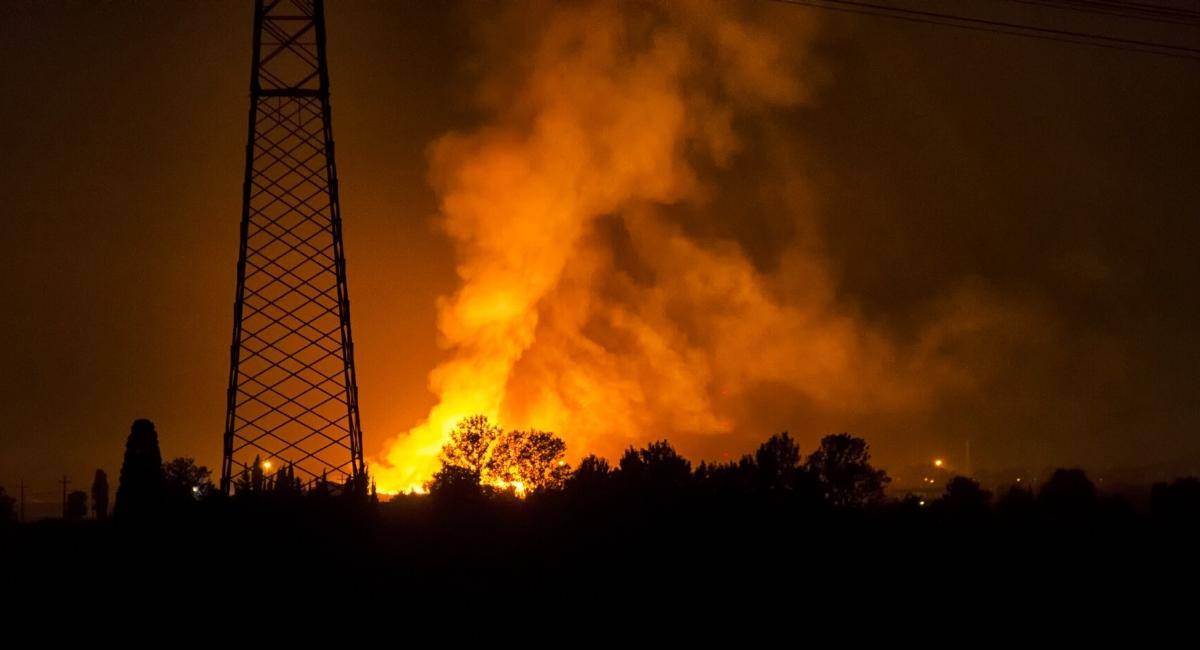Merriam-Webster defines arson as the willful or malicious burning of property, especially when it is done with criminal or fraudulent intent. Anybody who is accused of an arson offense in Texas will want to seek the help of a Denton arson defense attorney.
People can have a wide variety of possible motives for causing a fire on another party’s property, with revenge and insurance fraud being two of the most common. The intent is often important to many arson charges, although a prosecutor could be able to argue that an alleged offender simply acted recklessly.

Arson Defense Lawyer in Denton, Frisco, Lewisville, Flower Mound, TX
If you were arrested for arson? You need an experienced criminal defense attorney to help achieve the best possible outcome for your case. Our firm will aggressively review your case and begin outlining all of your legal options. Contact the Law Offices of Richard C. McConathy today at (940) 222-8004 for a consultation about your alleged offense in Denton, Frisco, Lewisville, Flower Mound, and surrounding areas of Denton County, Texas.
Arson Charges in Texas
Under Texas Penal Code § 28.02(a), a person commits an arson offense when they start a fire, regardless of whether a fire continues after ignition or cause an explosion with the intent to destroy or damage any kind of vegetation, fence, or structure on open-space land, or any building, habitation, or vehicle either:
- knowing that the fire is within the limits of an incorporated city or town
- knowing that the victim is insured against damage or destruction
- knowing that the victim is subject to a mortgage or other security interest
- knowing that the property is located on property belonging to another
- knowing that the victim has located within it property belonging to another
- when the alleged offender is reckless about whether a burning or explosion will endanger the life of some person or the safety of the property of another
Texas Penal Code § 28.02(a-1) states that an alleged offender commits an arson offense when they recklessly start a fire or cause an explosion while manufacturing or attempting to manufacture a controlled substance, and a fire or explosion damages any building, habitation, or vehicle. Under Texas Penal Code § 28.02(a-2), an alleged offender commits an arson offense if they intentionally start a fire or cause an explosion and, in so doing:
- recklessly damage or destroy a building belonging to another; or
- recklessly cause another person to suffer bodily injury or death.
It is an exception to Texas Penal Code § 28.02(a)(1) that a fire or explosion was a part of the controlled burning of open-space land. Another defense under Texas Penal Code § 28.02(a)(2)(A) is that prior to starting the fire or causing an explosion, an alleged offender obtained a permit or some other written authorization granted in accordance with a city ordinance, if any, regulating fires and explosions.
A violation of Texas Penal Code § 28.02(a) is a second-degree felony, except that the offense is a first-degree felony if bodily injury or death is suffered by any person by reason of the commission of an arson offense, or the property intended to be damaged or destroyed was a habitation or a place of assembly or worship.
Offenses under Texas Penal Code § 28.02(a-1) are state jail felony crimes, except that they become third-degree felony offenses if bodily injury or death is suffered by any person because of the commission of the arson offense. A violation of Texas Penal Code § 28.02(a-2) is a state jail felony.
Denton County Arson Penalties
Arson crimes are felony offenses, so penalties for convictions can be more severe. The possible consequences of this kind of property crime conviction may include:
- State Jail Felony — Up to two years in state jail and/or fine of up to $10,000
- Third-Degree Felony — Up to 10 years in prison and/or fine of up to $10,000
- Second-Degree Felony — Up to 20 years in prison and/or fine of up to $10,000
- First-Degree Felony — Up to 99 years or life in prison and/or fine of up to $10,000
Other Criminal Charges Relating to Arson in Texas
People could face several other criminal charges in addition to underlying arson crimes. For example, Texas Penal Code § 28.04 relates to reckless damage or destruction.
Commission of a reckless damage or destruction offense involves, without the effective consent of the property owner, an alleged offender recklessly damaging or destroying the property of a property owner. This crime is a Class C misdemeanor punishable by a fine of up to $500.
Texas Penal Code § 28.03 is the state law relating to criminal mischief. An alleged offender commits a criminal mischief offense if, without the effective consent of the property owner, they intentionally or knowingly damage or destroy the tangible property of an owner, intentionally or knowingly tamper with the tangible property of the owner and cause pecuniary loss or substantial inconvenience to the property owner or a third person, or intentionally or knowingly make markings, including inscriptions, slogans, drawings, or paintings, on the tangible property of the property owner.
An offense is a Class C misdemeanor if:
- the amount of pecuniary loss is less than $100; or
- except as provided in Texas Penal Code § 28.03(3)(A) or Texas Penal Code § 28.03(3)(B), it causes substantial inconvenience to other parties
It is a Class B misdemeanor when the amount of pecuniary loss is $100 or more but less than $750. An offense is a Class A misdemeanor when:
- the amount of pecuniary loss is $750 or more but less than $2,500; or
- the alleged offender causes impairment or interruption of any public water supply, in whole or in part, or causes any public water supply, to be diverted in whole, in part, or in any manner, including installation or removal of any device for any such purpose, regardless of the amount of pecuniary loss
Criminal mischief is a state jail felony when the amount of pecuniary loss is:
- $2,500 or more but less than $30,000
- less than $2,500, when the property damaged or destroyed is a habitation and the damage or destruction is caused by either a firearm or explosive weapon
- less than $2,500, when the property was a fence used for the production or containment of cattle, bison, horses, sheep, swine, goats, exotic livestock, or exotic poultry; or game animals
- less than $30,000 and an alleged offender causes wholly or partly impairment or interruption of property used for flood control purposes or a dam or of public communications, public transportation, public gas or power supply, or other public service; or causes any public communications or public gas or power supply to be diverted wholly, partly, or in any manner, including installation or removal of any device for any such purpose
It is a third-degree felony if the amount of the pecuniary loss is $30,000 or more but less than $150,000, the alleged offender, by discharging a firearm or other weapon or by any other means, causes the death of one or more head of cattle or bison or one or more horses, or the alleged offender causes wholly or partly impairment or interruption of access to an automated teller machine, regardless of the amount of the pecuniary loss.
Criminal mischief a second-degree felony if the amount of pecuniary loss is $150,000 or more but less than $300,000. It is a first-degree felony if the amount of pecuniary loss is $300,000 or more.
Denton Arson Resources
Arson Resource Directory | Office of Justice Programs — This directory was prepared by the United States Fire Administration (USFA) of the Federal Emergency Management Agency (FEMA), and provides both an explanation and full identification of key resources involved in arson prevention and control. Programs and resources identified for the investigation and prosecution of arson cases are training and education programs, arson detection equipment manufacturers, and forensic laboratories analyzing arson evidence. Programs dealing with economic factors are also listed and include insurance industry programs and activities.
Arson | Bureau of Alcohol, Tobacco, Firearms and Explosives (ATF) — Title XI of the Organized Crime Control Act of 1970 authorizes the ATF to initiate investigations and assist in state and local bomb and arson investigations. Learn more about its arson and explosives training programs. Also, learn more about ATF Certified Fire Investigators (CFIs).
State Farm Lloyds Inc v. Polasek, 847 S.W.2d 279 (Tex. App. 1993) — In this arson and bad faith case, State Farm was appealing a judgment against it for actual and exemplary damages. A 1990 fire destroyed the Polaseks’ video rental business, which State Farm insured. State Farm denied the Polaseks’ insurance claim on the ground that the fire was caused by arson. The Polaseks filed suit, and ultimately a jury found that the Polasek’s had not committed arson and that State Farm acted in bad faith because it did not have a reasonable basis for denying their claim. The jury awarded damages of $40,000 for property loss and $200,000 for mental anguish, as well as $500,000 for exemplary damages. The Court of Appeals of Texas in San Antonio affirmed the judgment for property loss and attorney’s fees based upon a contract but reversed the bad faith recovery for mental anguish and exemplary damages and rendered judgment that the Polasek’s take nothing.
Find A Denton County Defense Attorney for Arson Charges | Law Offices of Richard C. McConathy
Were you recently arrested for arson in Denton County? You are going to need to work with a criminal defense lawyer so you can possibly get your criminal charges reduced or dismissed.
Contact the Law Offices of Richard C. McConathy today at (940) 222-8004 for a consultation about your alleged offense in Denton, Frisco, Lewisville, Flower Mound, and surrounding areas of Denton County, Texas.


